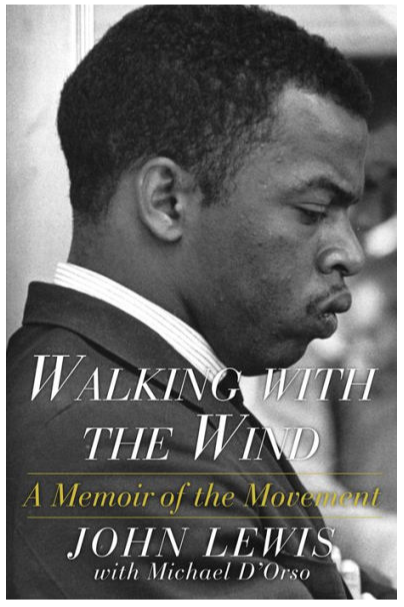


Nashville, a relatively tolerant city with several Black colleges and universities, served as the most important site where students engaged in successful sit ins and other peaceful protests against segregated lunch counters, movie theaters and other venues in 1960, and John Lewis was a key participant in the Nashville Student Movement.

He was an excellent student in the segregated schools he attended in Troy, but they provided him with a second class education and did not adequately prepare him to enter Morehouse College in Atlanta, where Dr King received his bachelor's degree, so he accepted a scholarship to the American Baptist Theological Seminary in Nashville, Tennessee. Dr King's message of nonviolent protest against racial prejudice, the church's key role in the successful Montgomery bus boycott, and the brutal murder of Emmett Till in Money, Mississippi that year deeply affected and influenced him, and despite his parents' fears and desires for him he decided to become an active participant in the nascent civil rights movement. As he later described in the award winning graphic novel March: Book One he first gained a love of the ministry by preaching to the chickens in his household, whose care was entrusted to him, which was enhanced in 1955 after he heard a sermon given by a young minister from Atlanta who led a church in nearby Montgomery, Alabama. In "Walking with the Wind", Lewis gives a detailed account of his modest upbringing in a medium sized segregated town in the Deep South in the 1940s and 1950s, in a stable family who was poor but not impoverished, as no one went hungry or suffered from want.

This well written and compelling memoir of one of the most important members of the Civil Rights Movement, and the representative for Georgia's 5th congressional district - including most of the City of Atlanta, my former home - covers his birth to a family of uneducated sharecroppers in Troy, Alabama - my mother's home town - to his surprising election to Congress in 1986, upsetting his longtime friend Julian Bond, who, like Lewis, was one of the founding members of the Student Nonviolent Coordinating Committee (SNCC), one of the most important civil rights groups of the 1960s, along with the Southern Christian Leadership Conference (SCLC) and, to a lesser extent, the NAACP.


 0 kommentar(er)
0 kommentar(er)
